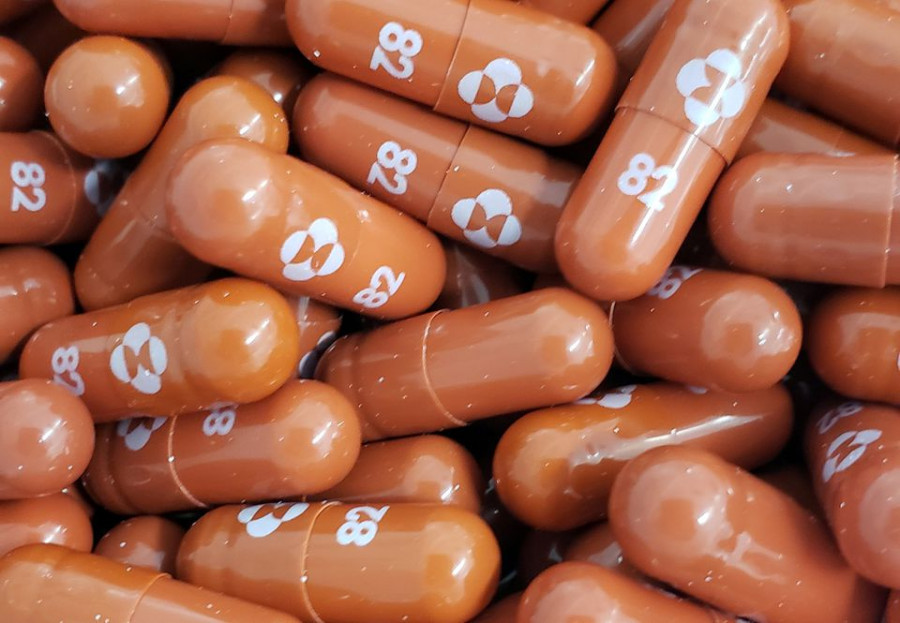Health
Covid drugs of Indian origin destined for China seized at Kathmandu airport
Officials say smuggling of unauthorised medicines from India has emerged as a threat.
Arjun Poudel
Customs officials at the Tribhuvan International Airport confiscated drugs worth Rs1.8 million last week.
The drugs, which are used in the treatment of severe Covid infection, were brought from India to smuggle to China, officials said.
“We have been investigating the rising trend of smuggling drugs worth hundreds of thousands of rupees,” said Santosh KC, spokesperson for the Department of Drug Administration (DDA). "We will destroy the seized drugs, which were being smuggled to a third country.”
Smuggling of medicines from India has emerged as a challenge for the Nepali authorities. Despite Nepal’s efforts to curb the practice, it has been going on for years, according to officials.
On Tuesday too, authorities in Kanchanpur district confiscated medicines worth one million rupees. Officials said the medicines were not authorised in Nepal and had been smuggled for sale in Nepali dispensaries.
The DDA, which is the national regulatory body of the drugs market, said importing drugs without permission from any country is illegal. To import any drug into the country, the drug manufacturing company or its authorised dealer has to register the product with the department first and take permission for import by fulfilling all due procedures.
Officials at the department register drugs manufactured by foreign companies following rigorous tests and after ascertaining whether the drugs are manufactured in line with WHO good manufacturing practices or not.
“It is the responsibility of all the agencies concerned including the police, local governments and the public themselves to help discourage smuggling of medicines into Nepal,” said KC. “As drugs are directly linked to human health, we cannot rule out the possibility of untoward incidents arising from use of illegally-imported unregistered drugs.”
Earlier in November, the department had alerted drugs inspectors throughout the country to prevent the import and sale of medicines from unauthorised channels.
The move of the department came after scores of children in Gambia died of kidney failure after consuming cough syrups manufactured by an Indian pharmaceutical company.
The WHO had also issued a global alert about four cough syrups that could have links to the deaths of the children in July, August, and September, in the West African country. Indonesia also witnessed a spike in cases of acute kidney injury in children since August, and over 320 cases of the said problems were recorded throughout the country.
Nepal and India share hundreds of kilometers of porous border, through which thousands of people cross over to each other’s territories every day. Small traders smuggle various goods including medicines into Nepal taking undue advantage of the largely unregulated border.
The WHO requests increased surveillance and diligence within the supply chains of countries and regions likely to be affected by spurious medical products. It also advises increased surveillance of the informal/unregulated market.
Officials at the department concede that the government cannot examine the quality of each and every drug, and the drug manufacturers themselves have to ensure the safety of their products. And the tendency among Nepalis of buying over-the-counter drugs without knowing the negative consequences increases the risk of using illegally imported medicines, according to officials.
Department officials said they can’t curb illegal import of medicines as they lack sufficient drug inspectors.
“Neither the supplier nor the manufacturer will be responsible for the possible adverse effects of illegally imported drugs,” said KC. “People themselves should be aware and inquire if medicines are manufactured by WHO GMP-certified companies, and imported through legal channels. Pharmacies too should not sell illegally imported drugs.”




 9.89°C Kathmandu
9.89°C Kathmandu















